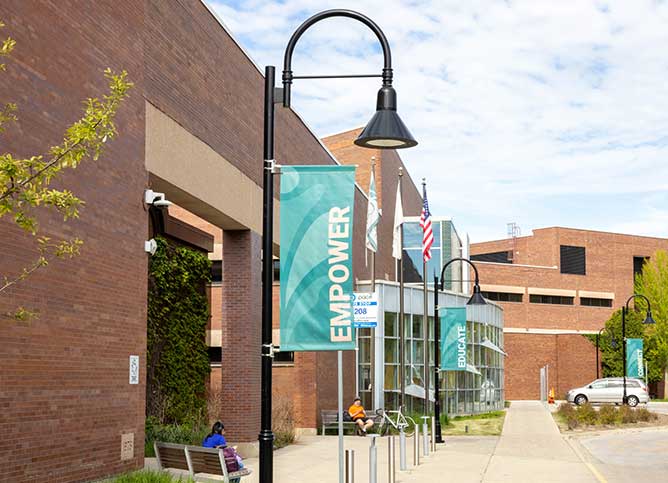In a busy hospital, it is essential to equip doctors, nurses and other caregivers with sterile, organized tools. A team of sterile processing technicians work together to make sure all the equipment is ready to go—from the medical instruments used during surgery to first aid supplies to equipment like beds and wheelchairs. Sterile processing technicians are the first line of defense against infections associated with health care.
As a sterile processing technician, you will play an essential role in ensuring that patient safety comes first. You’ll learn how to clean, organize, package, transport and store these tools using special procedures. Sterile processing technicians do not interact directly with patients, but do regularly interact with professional teams in health care settings like hospitals, surgical centers, specialty clinics, and dental clinics.
In one semester, you will get the training you need for an entry-level job as a sterile processing technician (also known as a medical equipment preparer or instrument technician). You will learn to use sterilizing equipment in our on-site lab. You will also get hands-on experience in a hospital setting through clinical training. And, you will be ready to get the work experience necessary to take the national certification exam.
You will learn from technicians who bring years of experience to the classroom and know exactly what you need to know to succeed on the job.
This is a limited enrollment health care program. For additional information, contact a health career specialist at healthcareeradvising@oakton.edu.
Students will learn skills in accordance with the standards and guidelines recommended by the International Association of Healthcare Central Service Material Management (IAHCSMM). Upon successful completion of the program and the required work experience the graduate is eligible to take a national certification exam.
Clinical placements require a health assessment, certain immunizations, yearly flu vaccine, criminal background check, specific skill certification (i.e., CPR). Clinical placements may require substance abuse testing and health insurance. These requirements represent an additional cost to the student.
With the availability of the COVID-19 vaccine, our clinical site partners are updating their requirements for COVID-19 vaccination. Oakton must also follow the requirements of our clinical sites with regard to immunization requirements. It is the decision of the clinical sites, not Oakton, if immunizations are required for our students. Effective for the Spring 2022 semester, the clinical facility partners will not permit students to participate in clinical experiences at any of their facilities without the COVID-19 vaccination.
Students are not employees and have neither employee benefits nor access through employee health services at the facility, therefore, accommodations for declination of vaccination will not be honored. As guests of each facility, Oakton programs must abide by the rules of the facility.
Students must provide proof of vaccination. Failure to provide documentation will result in student dismissal from clinical courses.
Enrolling at Oakton College can save you thousands of dollars and help you earn more over the course of your career. Our tuition is among the lowest in the region, and we offer many ways to bring your costs down even more.
99 percent of Oakton students graduate without debt.
To help you get there, you can apply for a scholarship, which you don’t have to pay back. We award $12 million in scholarships annually. Financial Aid includes grants, loans, and other forms of financial assistance that can reduce your costs of attending college.
We offer payment options that give you control over how you pay. Pay all at once or spread your payments over the course of the semester.
Learn more about your options for paying for your education

Oakton's Academic Catalog is your guide to programs, course descriptions and policies. You will find an overview of what classes are required for your certificate/degree, your pathway (or suggested sequence of classwork), along with learning outcomes.
Connecting with an advisor before you start the enrollment process can help you on your best path forward.
View the Course Catalog for the Sterile Processing Technician Certificate